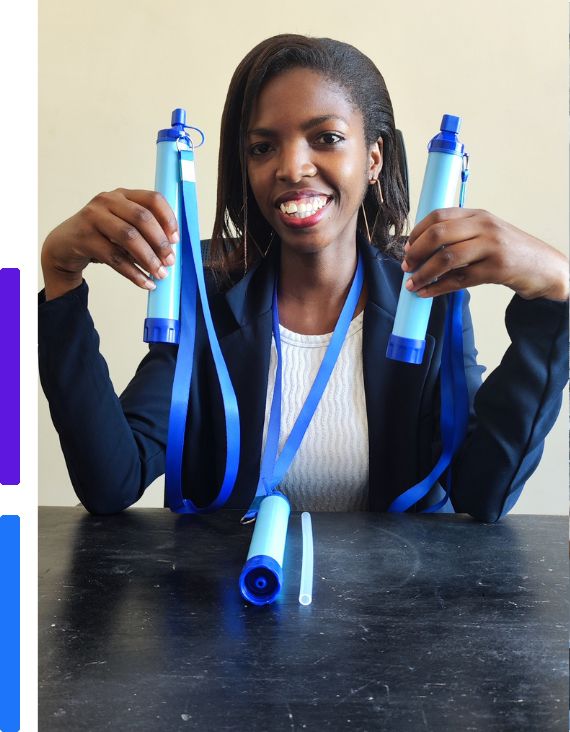
How Portable Water Filters Empower Rural African Schools
For millions of children in rural Africa, the journey to education faces a significant hurdle: access to clean drinking water. Contaminated water sources are a breeding ground for waterborne illnesses, causing absenteeism, hindering learning, and impacting overall health.
This is where a simple yet powerful tool can make a world of difference: the portable water filter. Here’s how these portable heroes can transform rural schools and empower children to learn and thrive.
A Lifesaving Solution:
Waterborne diseases like diarrhea, typhoid, and cholera are prevalent in areas with limited access to clean water. Children are particularly vulnerable, suffering from these illnesses more frequently and severely. Portable water filters act as a shield, removing harmful bacteria, protozoa, and parasites from contaminated sources. This translates to fewer missed school days due to illness, allowing children to stay focused on their education.
Boosting Attendance and Learning:
Studies have shown a clear link between access to clean water and improved school attendance. When children are healthy and hydrated, they can concentrate better in class, participate more actively, and retain information more effectively. Portable water filters directly contribute to this by providing a readily available source of safe drinking water at school.
Empowering Communities:
Portable water filters are not just tools; they can be catalysts for community involvement. Training teachers and community leaders on filter operation and maintenance empowers them to take ownership of their children’s health. This fosters a sense of responsibility and builds local capacity for long-term water security.
Beyond the Classroom:
The benefits of portable water filters extend beyond the school walls. Children can take these filters home, providing their families with access to clean drinking water. This reduces the burden of waterborne illnesses on the entire community, leading to a healthier and more productive population.
Choosing the Right Tool:
Not all portable filters are created equal. For rural African schools, some key factors to consider include:
- Ease of Use: Children should be able to operate the filter safely and efficiently. Look for simple designs with clear instructions.
- Durability: The filter should be built to withstand the rigors of daily use and harsh environments.
- Effectiveness: Choose a filter certified to remove harmful contaminants present in the local water source. Look for certifications from reputable organizations.
- Maintenance: Consider filters requiring minimal maintenance or using readily available replacement parts.
Sustainable Solutions:
Sustainability is key. Look for filters with replaceable cartridges readily available within the community. Additionally, explore options for solar-powered disinfection systems that can serve larger groups while minimizing reliance on external resources.
A Ripple Effect of Change:
Portable water filters offer a simple yet impactful solution for improving the lives of rural African children. By ensuring access to clean water, they empower children to learn, communities to thrive, and create a ripple effect of positive change that extends far beyond the classroom walls.
Taking Action:
There are numerous organizations working to bring clean water and sanitation solutions to rural communities. Consider getting involved by volunteering your time, donating to relevant causes, or raising awareness within your own community. Together, we can ensure that every child has the opportunity to learn and reach their full potential, with a glass of clean water by their side.

